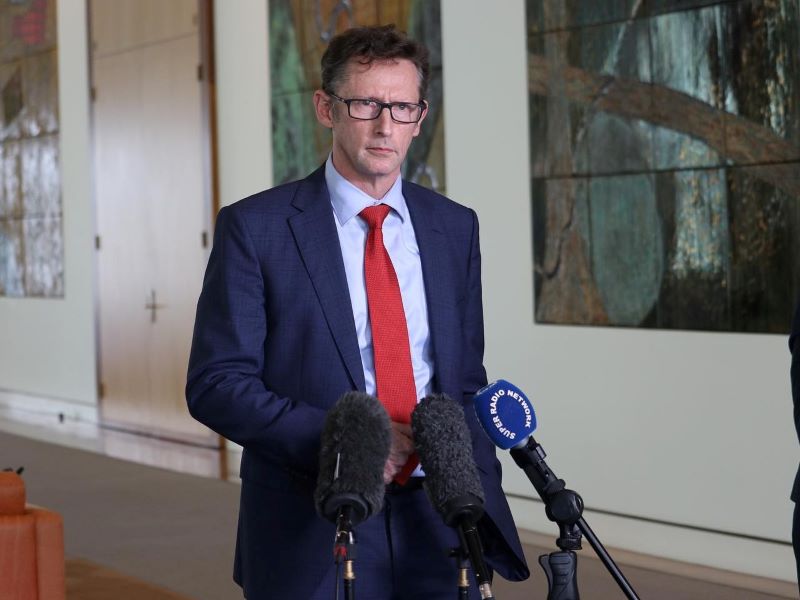Social media giants are “dragging their heels” on scams, Assistant Treasurer Stephen Jones said on Wednesday while outlining new obligations to prevent scams and compensate victims.
Mr Jones told the National Press Club that “digital platforms have a moral obligation to join the fight as part of their social licence”, given they are used heavily by scammers to contact victims.
He argued that insufficient action from social media companies is a “huge problem because scammers will identify and target the weakest point in the ecosystem”.

While total scams losses fell by 13 per cent between 2022 and 2023 to $2.74 billion, Mr Jones said “scam losses originating on social media were up 17 per cent in 2023”.
“It is a big problem that digital platforms let scammers use their network to target victims. It is offensive that they make money from scam ads on their platforms while victims lose,” he said.
Mr Jones argued that tech companies are “worth trillions of dollars” and “can afford to invest in a significant uplift to keep consumers safe”.
His speech was delivered a week after claiming a voluntary anti-scams code, led by social media industry group DIGI, “falls short of what is needed and what is expected by the Australian community”.
The eight initial signatories of the code are Discord, Google, Meta, X, Snap, TikTok, Twitch and Yahoo. The companies have committed to blocking suspected scams and to verify advertising across severalconsumer services.
Treasury is currently developing a Scams Code Framework and mandatory industry codes that will require social media platforms to verify advertisers and take down scam pages.
The government undertook public consultation on its industry codes between November 2023 and January 2024.
Mr Jones said that “if there is a breach of the code, the bank, telco or digital platform will be…liable to compensate the victim”.
“All businesses that benefit from the digital economy have a role in protecting consumers. And that includes redress for consumers for authorised transactions where appropriate,” he said.
The scheme will not require compensation for all scam victims however, with Mr Jones arguing this would make Australia more attractive to scammers echoing warnings from the banking sector.
The United Kingdom will be the first jurisdiction to introduce mandatory compensation for scam victims from October. While Mr Jones won’t rule it out, he’s “not convinced…[this] is the best approach for Australia”.
The incoming mandatory code will also require banks to implement “systems that identify dodgy payments and accounts and then take action to protect members”, and telcos to “block known scam numbers”.
Businesses will also be required “to help their customers directly with complaints” and will “have a responsibility to report and respond to scams”.
After the code is rolled out to the first three sectors, Mr Jones said digital currency exchanges, superannuation, and online marketplaces are likely next in line.
Mr Jones said incoming legislation lays out clear enforceable responsibilities in the fight against scams that will “evolve as technology changes”.
“We will make Australia one of the hardest targets in the world for scammers.”
The government set aside $67.5 million in the 2024-25 federal Budget to implement the second tranche of reforms against scammers.
Do you know more? Contact James Riley via Email.

